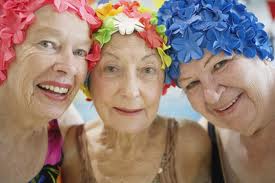Before I jump into the subject I really want to share today, I want to post some links to the 2-3 minutes videos that have been playing all week over at the Dhana EcoKids blog. Today ends a 6-part video series I did in collaboration Shamini, the CEO, a woman who knows the value of female friendship. She interviewed me talking about the friendship challenges that her audience (primarily mothers) face as they engage in friend-making:
- Intro Video: Meet Shamini & Shasta--read a summary of the whole series.
- Day 1: The Three Challenges Moms Face in their Friendships
- Day 2: 1st Challenge: Being Friends With Women at Different Life Stages
- Day 3: 2nd Challenge: Not having the Time or Energy for Friend-Making
- Day 4: 3rd Challenge: My Kids Friends and My Friends Aren't Related
And today, is the last video of the series: Model the Friendships You Wish for Your Kids
One of the exercises I used to have women in my friendship programs do was journal about what they remember learning from their mother about female friendship. I encouraged them to try to go back through all their memories to see what was spoken or modeled to them-- do they have memories of mom going out for girls nights? What did their moms say or imply about female friendships (worth it? not trustworthy?) Do they remember seeing their mom gab on the phone with girlfriends in the evenings? Did their mom have friends over frequently?
And while this isn't scientific polling, I'd estimate that 7 out of 10 women ended up confiding in me that they were shocked that they couldn't remember if their mothers even had close friends.
It was a rare woman who said that her mother had what she'd call healthy friendships, the kind of community she wants to replicate in her own life. I've had only a handful of women say to me, "I had great modeling."
Unfortunately, most of the women have this ah-ha that says "Oh, this may speak to why this is so hard for me... I never had healthy friendships modeled to me."
Now, I want to give the benefit of the doubt to most of those mothers and hope that their daughters who I'm working with in my programs simply don't remember. I want to believe that their mothers really did have meaningful friendships that mattered to them. But it still raises the question about modeling. If your child didn't see it-- they didn't pick it up. If it all happened when they were really young--they won't remember it.
If we don't have it modeled to us, then how are we supposed to learn it? We certainly aren't taught any classes in school. We end up just thinking we're supposed to just naturally be good at female friendship-- instinctively knowing the different types of friends, what healthy expectations look like, how to transition relationships through various life changes, how to foster them through the five stages, and how to ask for what we need--while rarely having our teachers or mothers explain to us what's normal, healthy, and meaningful.
More than wanting our kids to have healthy friendships, we have to show them that it's a priority in our lives. We have to kiss them good-bye in the early evening and say "Tonight is when I get to go be with my friends-- see you in the morning." And we can't just do it once.
- I think of my friend Daneen who leaves her daughter every Tuesday evening for girls night-- her daughter knew that mommy was playing with her friends and that she was going to have a special night with Daddy.
- I think of my sister who, with her best friend, gets their families together all the time-- not for the sake of the kids, but for the sake of the moms.
- I think of my own step-mom who left me with memories as a little girl of her going shopping on Sunday afternoons with her girlfriends.
- I think of the time I walked down the stairs late one night to see my mom and her friend Ellen eating a whole pot of tapioca pudding and giggling-- to this day it's one of my favorite memories.
- I think of the women in my girls group--Val, Karen, and J'leen-- who, every spring, tell their kids that they are going away for a girls weekend with their girlfriends, and then leave their kids with spouses, parents, or friends.
Hard to do? Absolutely. Important, though? Absolutely.
My invitation to you is not an easy one. But I implore you to picture the friendships you want your kids to have when they are adults. And model that to them now. There is simply nothing more powerful than modeling-- you are the most influential person in their lives--you showing them how important those relationships are will serve them their entire life.
And the good news? It's not just for their benefit that you are prioritizing time with friends. The gains will be worth the time and energy.
-----------------
Speaking of Girls Night Out-- I'd LOVE to have you join me at one of my upcoming book launch parties from Feb.4-Feb.8. For the price of my book, you'll also get goody-bags, wine, treats, and get to hear me read and share from my book before I sign them! I'll be in San Francisco, Los Angeles, New York City, and Chicago.



